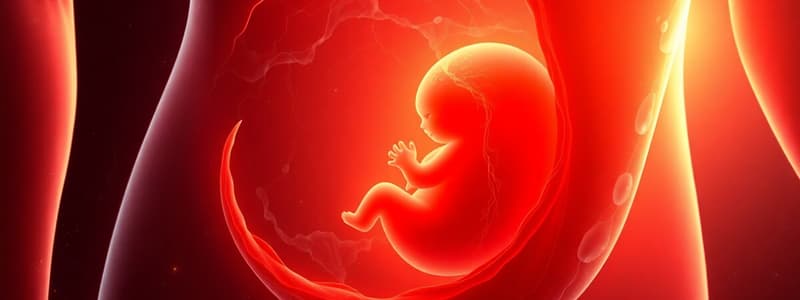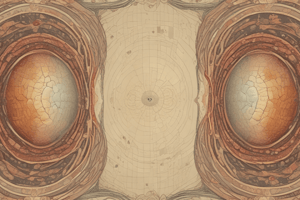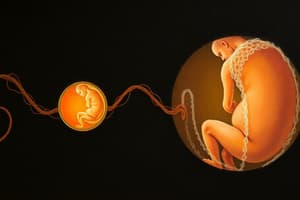Podcast
Questions and Answers
Where does fertilisation typically occur in humans?
Where does fertilisation typically occur in humans?
- Ovaries
- Fallopian tubes (correct)
- Uterus
- Cervix
What is the single cell formed by the fusion of sperm and ovum called?
What is the single cell formed by the fusion of sperm and ovum called?
- Embryo
- Blastocyst
- Zygote (correct)
- Fetus
The process where the embryo attaches to the uterine wall is known as?
The process where the embryo attaches to the uterine wall is known as?
- Implantation (correct)
- Gastrulation
- Ovulation
- Fertilisation
What is the process by which cells specialise to form tissues and organs called?
What is the process by which cells specialise to form tissues and organs called?
What is the approximate gestation period in humans?
What is the approximate gestation period in humans?
Flashcards
What is fertilization?
What is fertilization?
The process where a sperm cell fuses with an egg cell, resulting in a single-celled zygote.
What is a zygote?
What is a zygote?
A single-celled structure formed by the fusion of a sperm and an egg, marking the beginning of a new individual.
What is implantation?
What is implantation?
The attachment of a developing embryo to the uterine wall, a crucial step for pregnancy to continue.
What is cell differentiation?
What is cell differentiation?
Signup and view all the flashcards
What is the gestation period?
What is the gestation period?
Signup and view all the flashcards





